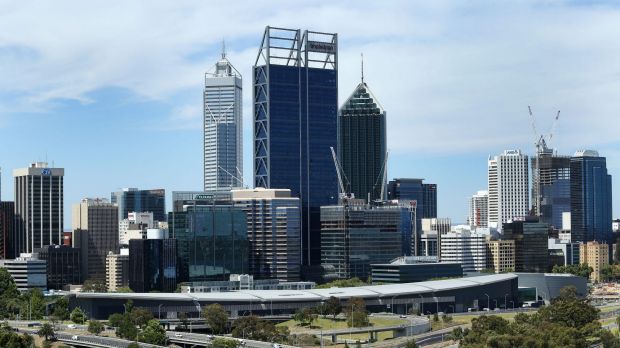The state of Western Australia's economy and its future is a key battleground in the looming state election with both the Liberals and Labor pitching hard to win voters over to their vision of the shape of things to come.
But in a sign of the times, a survey of Perth's CBD by the independent research company Y Research shows whichever side wins in March will have its work cut out pulling the state out of its slump.

Going door-to-door and floor-to-floor, report author Damian Stone ands his team surveyed 280 buildings zoned in the CBD and found Perth is becalmed with a vacancy rate comparable to that experienced in 1992, when Paul Keating was in power federally and we were in "the recession we had to have."
The Perth CBD Office Market Census - February 2017 shows the amount of vacant office space in the city increased by over 15 per cent in the last twelve months to over 450,000 square metres, pushing the current vacancy rate to 25.2 per cent - a 25-year peak.
"Since 2008, nearly $800 billion dollars has been invested in resources projects in WA, based out of head offices and project space across the CBD," Mr Stone explained.
"This demand drove CBD office vacancies to the lowest levels across the world and kept them below comparative cities post the Global Financial Crisis. Since 2012, resources firms and their supply chains have had to focus on survival."
If the city is the urban jungle, then it's been brutal in there lately; Y Research's figures show there were 45 iron ore tenancies in the Perth CBD in 2012 but right now in 2017 there are just 18.
"In the past 12 months, the CBD has lost over 4,000 office workers. Since the peak of the resources boom in 2012, there are nearly 15,000 fewer office workers in the Perth CBD," Mr Stone said.

The boom years triggered a rush of new building in the CBD as companies scrambled to cash in, adding 200,000 square metres of new office stock. And Mr Stone said the combination of shrinking work forces and increased office space in the CBD means the city is now doing less with more.
"Downsizing or closure of office tenancies, combined with a decade of new supply additions in the CBD, has pushed the vacancy level to its highest point in a quarter of a century," he said.
"This ongoing shift from the resources boom to a more historically normal Perth market is a significant adjustment for property owners and tenants."
There is some good news in the report - falling office rental prices are attracting new kinds of businesses to the CBD, traditionally a stronghold of mining and resources companies.
The proportion of CBD office stock occupied by education, technology, shared work spaces and medical companies has increased by over 20 per cent, with start ups flowing in and even Channel 9 now broadcasting from the city centre.
In the absence of another resources boom, growth in emerging sectors such as shared work spaces, technology and education and businesses trading up to work in Perth's centre could be the silver lining WA needs.
"The key in 2017 is to start looking forward - it is difficult to know where you are going if you keep looking backwards," Mr Stone said.
"Our state is built on the belief that tomorrow will be better than today. As such, 2017 represents the time to focus less on the past and renew the focus on what's next. As a resources city, our prospects are good. The long term outlook for Perth is positive; navigating the short term challenges will be the issue."

